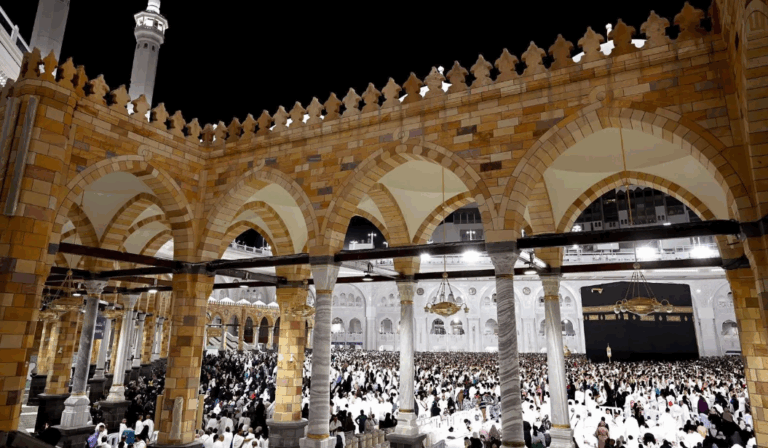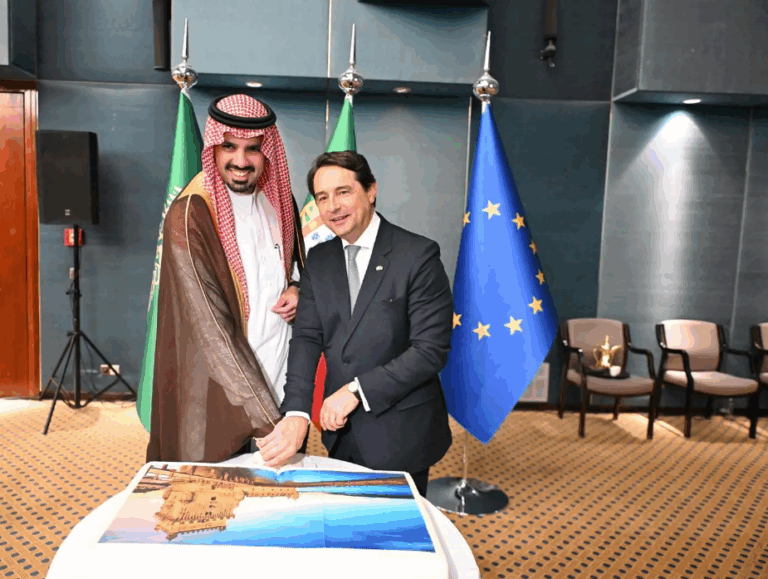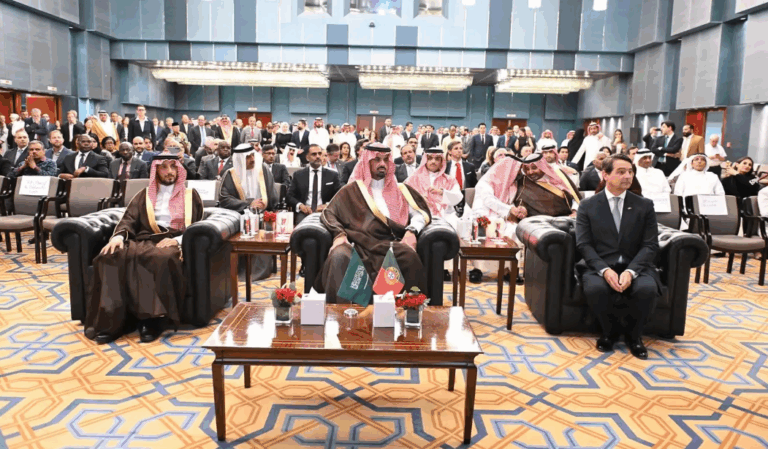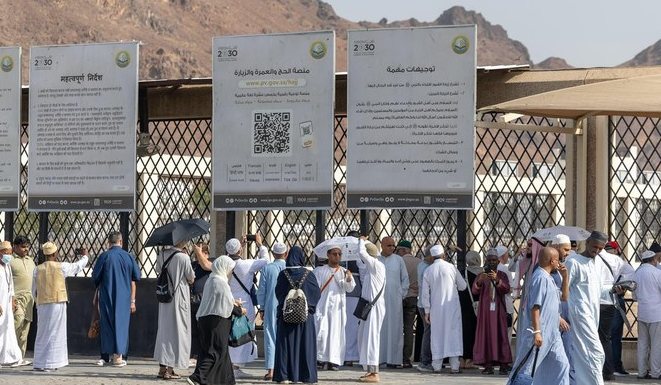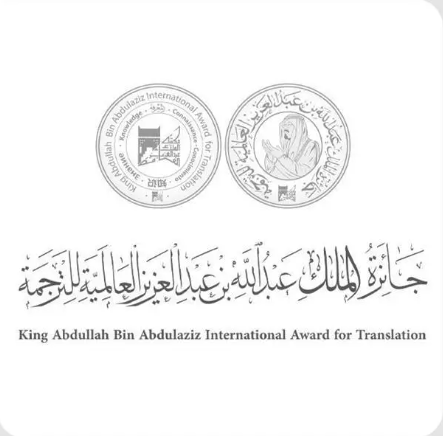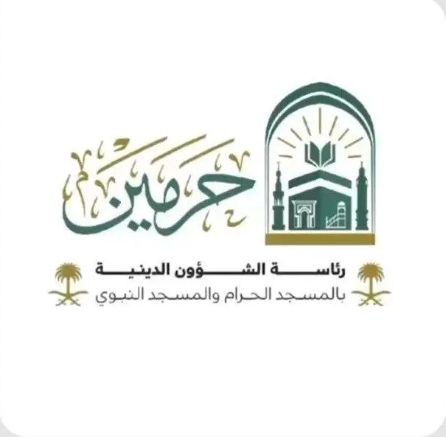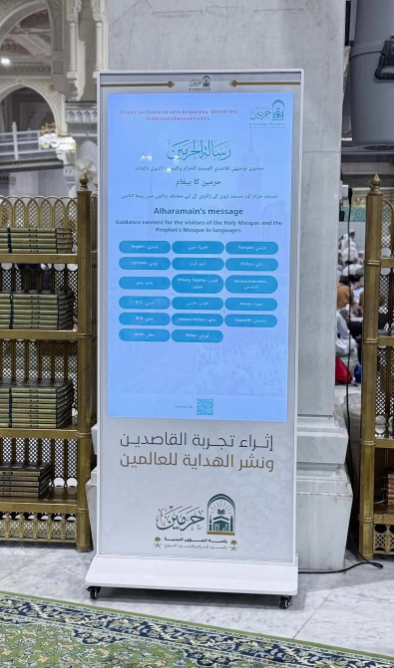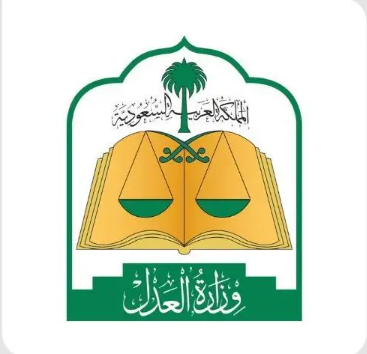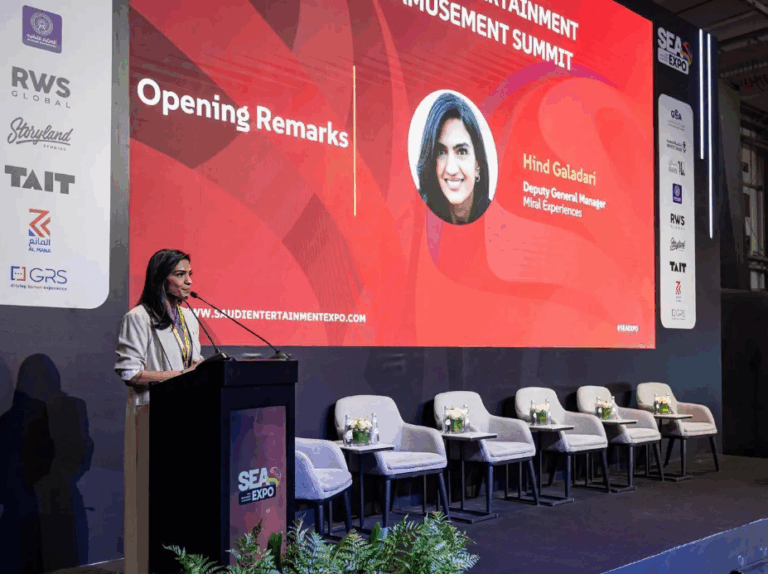**Title:** Women in Islam Conference Concludes
**Intro:** The International Conference on Women in Islam, centered on “Status and Empowerment,” concluded in Jeddah on November 8 after three days of high-level dialogue. Hosted by Saudi Arabia and organized by the OIC, the event convened ministers, scholars, and global leaders to address women’s rights in Islamic societies. Discussions highlighted Saudi Vision 2030’s empowerment initiatives and culminated in the adoption of the landmark Jeddah Document, reinforcing commitments to gender equality.
**Factbox:**
– **Event:** International Conference on Women in Islam
– **Host:** Saudi Arabia (OIC-organized)
– **Dates:** November 6–8, 2023
– **Key Output:** Jeddah Document on empowerment
– **Attendees:** Ministers, scholars, OIC officials
– **Highlight:** Saudi Vision 2030’s women-centric reforms
*(50 words)*
**Historic International Conference on Women in Islam Concludes in Jeddah, Spotlighting Empowerment and Rights**
*Jeddah, November 08, 2023* — The International Conference on Women in Islam, titled *“Status and Empowerment,”* hosted by Saudi Arabia under the patronage of King Salman bin Abdulaziz Al Saud and organized by the Organization of Islamic Cooperation (OIC), concluded today after three days of intensive dialogue. Ministers, scholars, policymakers, and thought leaders from across the Islamic world gathered to address critical issues impacting women’s rights, education, economic participation, and legal frameworks in Muslim-majority societies.
### A Platform for Progressive Dialogue
The conference featured **five thematic working sessions**, where participants examined challenges and opportunities for women in alignment with Islamic principles. Topics ranged from women’s roles in sustainable development and leadership to combating harmful stereotypes and enhancing access to justice. Delegates emphasized the need to reconcile traditional values with modern aspirations, fostering inclusive policies that empower women without compromising cultural identity.
### Saudi Vision 2030: A Catalyst for Change
Dr. Hala bint Mazyad Al-Tuwaijri, President of Saudi Arabia’s Human Rights Commission and head of the Kingdom’s delegation, underscored the nation’s commitment to advancing gender equality through **Vision 2030**, spearheaded by Crown Prince Mohammed bin Salman. In her closing remarks, she stated:
> “Under Vision 2030, Saudi women are breaking barriers in government, entrepreneurship, STEM, and beyond. This conference aligns with our transformative agenda to ensure women are architects of progress, both regionally and globally.”
Dr. Al-Tuwaijri also hailed the **Jeddah Document**, a landmark outcome of the conference, as a “historic Islamic achievement” that consolidates actionable recommendations for member states to advance women’s rights through education, legislation, and economic inclusion.
### OIC’s Pledge for Collaborative Action
Ambassador Yousef Al-Dubaie, OIC Assistant Secretary-General for Political Affairs, presented the conference’s **final communique**, which reaffirmed the OIC’s dedication to gender equality as a cornerstone of Islamic teachings. Key resolutions included:
– Strengthening legal protections against gender-based discrimination.
– Expanding women’s access to leadership roles in public and private sectors.
– Promoting educational reforms to eliminate barriers for girls and women.
– Leveraging technology to enhance women’s economic participation.
Participants unanimously expressed gratitude to Saudi Arabia’s leadership, including King Salman and Crown Prince Mohammed bin Salman, for hosting the event and advancing global discourse on women’s empowerment. A formal cable of thanks was extended to the Saudi government for its logistical and diplomatic support.
### A Milestone for the Islamic World
The conference marked a pivotal moment in reframing narratives around Muslim women, emphasizing their agency and contributions to societal development. By bridging theological insights with contemporary policy-making, the event set a precedent for collaborative, faith-aligned strategies to uplift women across the OIC’s 57 member states.
As delegates departed Jeddah, the focus now shifts to implementing the Jeddah Document’s recommendations—a task that promises to shape the future of women’s empowerment in the Islamic world for decades to come.
*For media inquiries or further details on the Jeddah Document and conference outcomes, visit the OIC’s official platform or the Saudi Human Rights Commission website.*
—
**Tags:** Women’s Empowerment, OIC, Saudi Vision 2030, Islamic Conference, Gender Equality
**Categories:** Human Rights, International Affairs, Saudi Arabia, Women in Islam
**FAQs: International Conference on Women in Islam “Status and Empowerment”**
1. **What was the primary objective of the International Conference on Women in Islam hosted by Saudi Arabia in November 2023?**
The conference aimed to address women’s rights, status, and empowerment in Islamic societies through dialogue among ministers, scholars, and intellectuals, culminating in the adoption of the Jeddah Document.
2. **How did Saudi Arabia’s Vision 2030 influence the themes discussed at the conference?**
Vision 2030’s emphasis on women’s empowerment, including their integration into economic, social, and political sectors, was highlighted as a model for advancing gender equity in Muslim-majority nations.
3. **What role did the Organization of Islamic Cooperation (OIC) play in organizing this event?**
The OIC co-organized the conference, facilitating discussions across five working sessions and overseeing the creation of a final communiqué to guide policies on women’s issues in member states.
4. **What is the significance of the Jeddah Document adopted during the conference?**
The Jeddah Document is a landmark framework outlining actionable steps to enhance women’s rights in Islamic contexts, reflecting consensus among OIC members on legal, educational, and economic empowerment.
5. **Who were the key speakers at the conference’s closing session, and what did they emphasize?**
Dr. Hala Al-Tuwaijri praised Saudi leadership’s support for women’s rights, while Ambassador Yousef Al-Dubaie presented the final communiqué, stressing collaboration among OIC nations to implement resolutions.
6. **How did participants acknowledge Saudi Arabia’s role in hosting the event?**
Attendees formally thanked King Salman and Crown Prince Mohammed bin Salman via a cable, commending the Kingdom’s logistical support and commitment to advancing global Islamic dialogue.
7. **What topics were covered in the five working sessions during the conference?**
Sessions explored legal reforms, economic inclusion, educational access, combating gender-based discrimination, and aligning Islamic principles with international women’s rights standards.
8. **Why is this conference considered a milestone for women’s rights in the Islamic world?**
It marked the first OIC-led gathering focused solely on women’s empowerment, establishing unified strategies to address systemic barriers and promote gender equality in Muslim societies.
9. **How does the conference align with Saudi Arabia’s recent reforms on women’s rights?**
The event reinforced Saudi initiatives under Vision 2030, such as expanding workforce participation and legal protections for women, positioning the Kingdom as a regional advocate for reform.
10. **What challenges did the conference identify regarding women’s empowerment in Islamic countries?**
Key challenges included cultural stigma, limited access to justice, unequal economic opportunities, and misinterpretations of Islamic texts that hinder gender-equitable policies.
11. **What recommendations were proposed in the final communiqué to address these challenges?**
Recommendations included reforming discriminatory laws, investing in women’s education and healthcare, enhancing political representation, and fostering partnerships with civil society organizations.
12. **How did the conference emphasize the intersection of Islamic values and women’s rights?**
Scholars underscored that Islamic teachings inherently support women’s dignity and rights, urging governments to harmonize religious principles with modern empowerment frameworks.
13. **What future steps were agreed upon to ensure the implementation of conference outcomes?**
OIC member states committed to monitoring progress through periodic reviews, sharing best practices, and integrating the Jeddah Document into national gender equality strategies.
14. **How did the conference address the role of men in advancing women’s empowerment?**
Sessions highlighted the need for male allies in leadership, policymaking, and community roles to challenge stereotypes and advocate for equitable opportunities.
15. **What global impact is anticipated from the conference’s resolutions?**
The resolutions aim to reshape narratives around Muslim women, fostering inclusive development aligned with UN Sustainable Development Goals while countering misconceptions about Islam and gender equality.
**Call to Action (CTA):**
Join the global conversation on women’s empowerment in Islam! Stay informed about groundbreaking initiatives like the **Jeddah Document** and explore how Saudi Arabia’s Vision 2030 is transforming opportunities for women. Follow the **Organization of Islamic Cooperation (OIC)** and Saudi Arabia’s Human Rights Commission for updates. Share your insights using **#WomenInIslam** and **#JeddahConference2023** to amplify the dialogue.
**Conclusión:**
The International Conference on Women in Islam marked a pivotal step toward advancing gender equality in the Islamic world. By uniting leaders, scholars, and advocates, the event highlighted both the progress made and the road ahead. Saudi Arabia’s commitment to women’s empowerment under Vision 2030, coupled with the landmark **Jeddah Document**, sets a powerful precedent for Islamic nations. This conference reaffirms that empowering women is not just a moral imperative but a cornerstone of sustainable development and cultural progress.
**Agradecimiento:**
We extend our deepest gratitude to the Kingdom of Saudi Arabia, under the patronage of **King Salman bin Abdulaziz** and the visionary leadership of **Crown Prince Mohammed bin Salman**, for hosting this historic event. Our thanks also go to the **Organization of Islamic Cooperation (OIC)**, Dr. Hala Al-Tuwaijri, Ambassador Yousef Al-Dubaie, and all participants whose expertise and dedication shaped this transformative dialogue. The Kingdom’s exceptional hospitality and organizational excellence ensured the conference’s success, paving the way for a brighter future for women in Islam.
**#WomenInIslam #JeddahDocument #Vision2030 #OIC**

